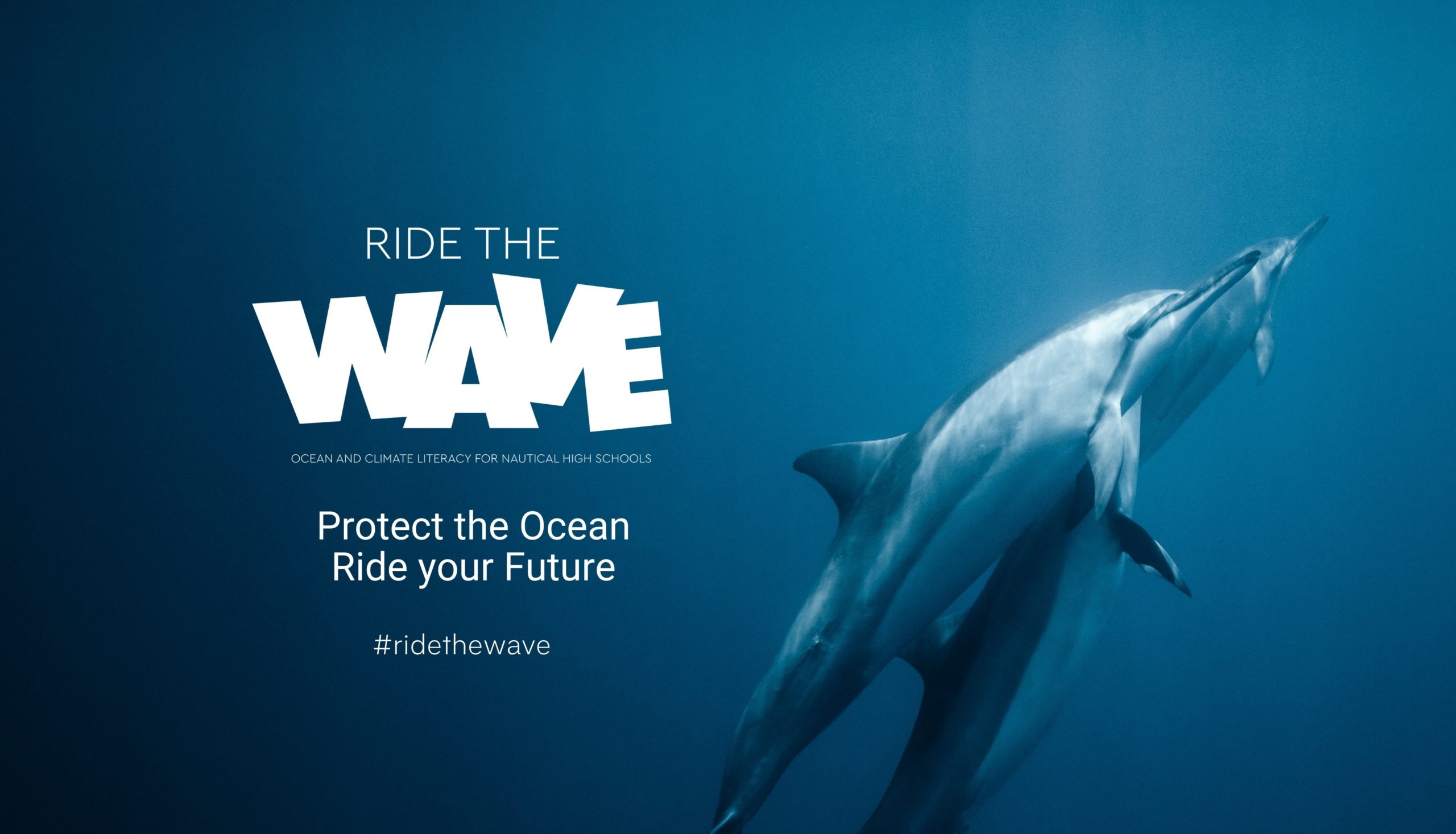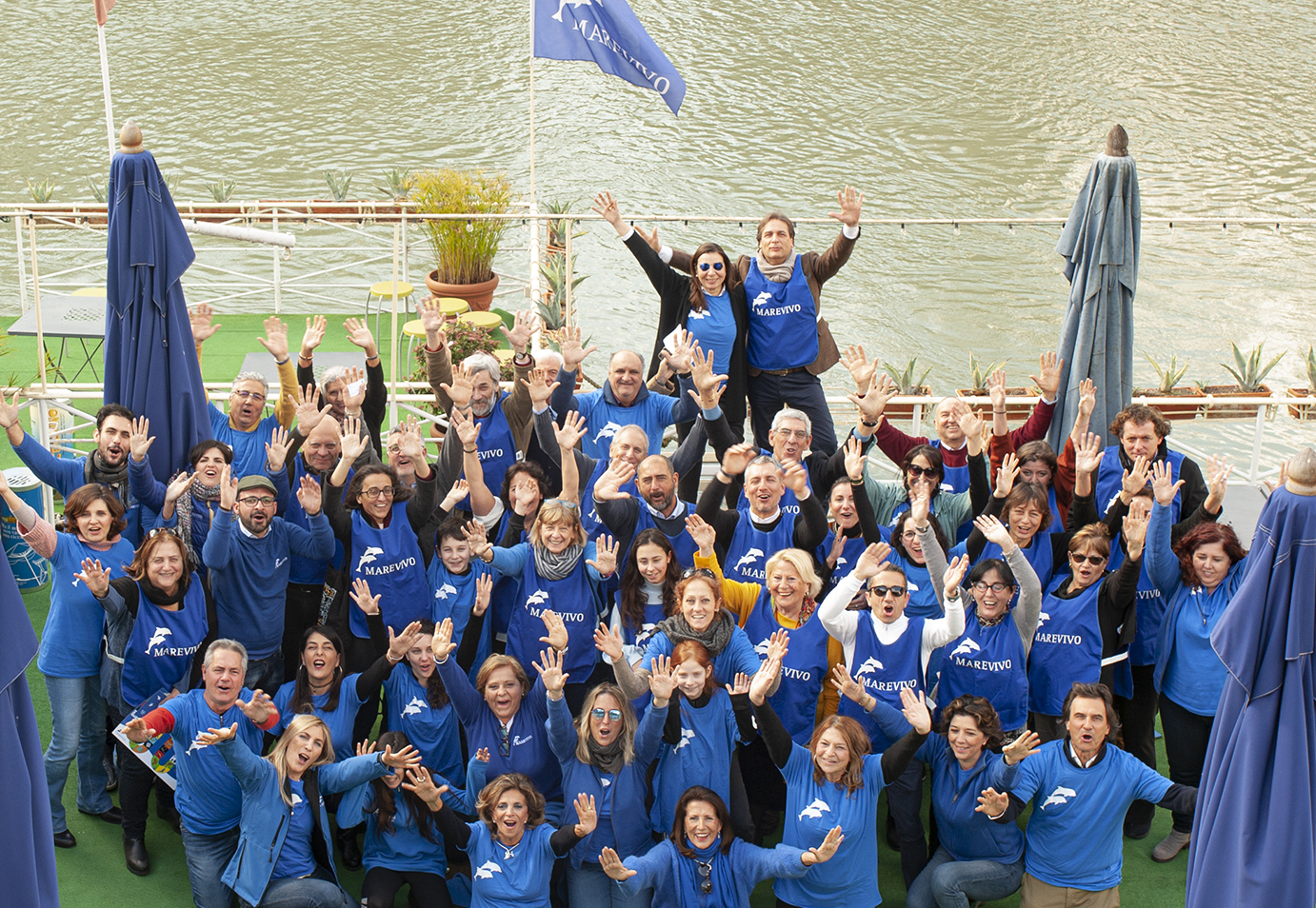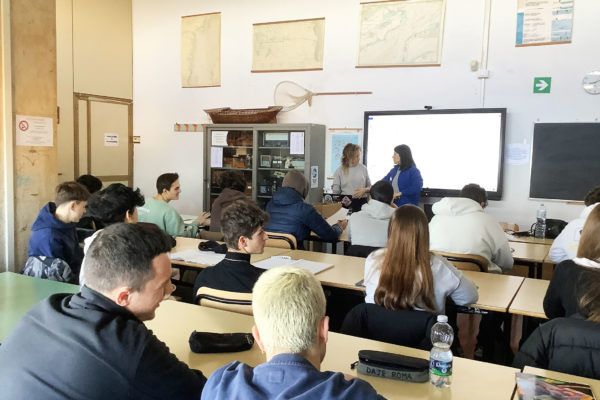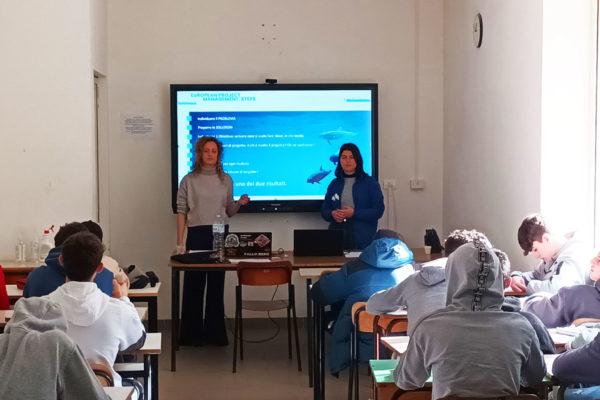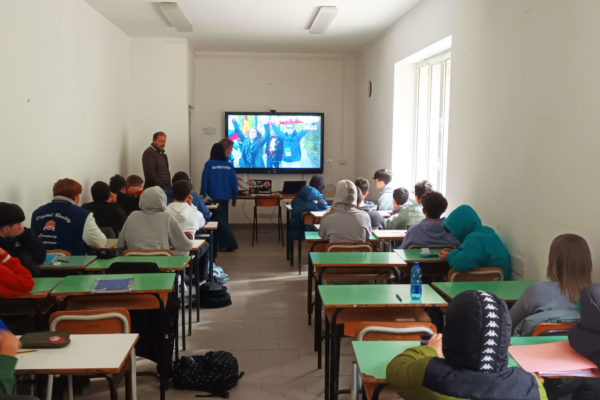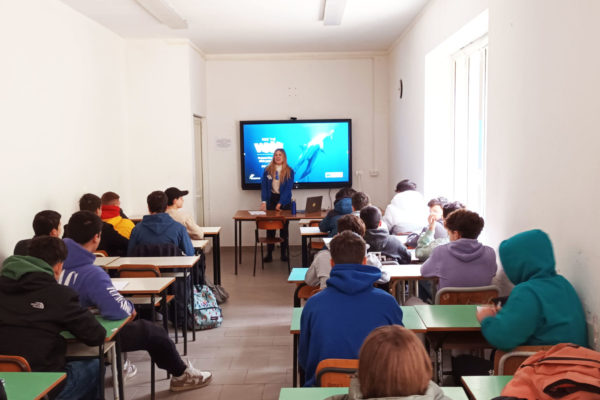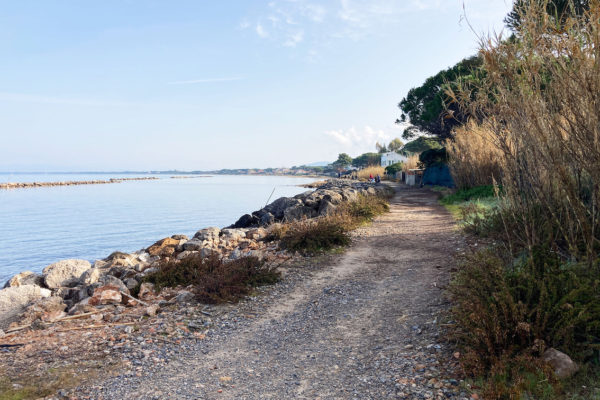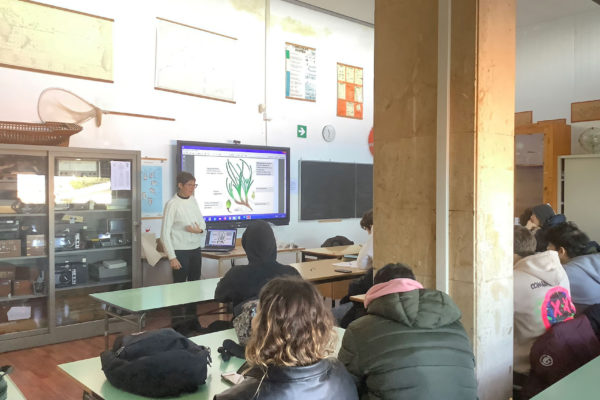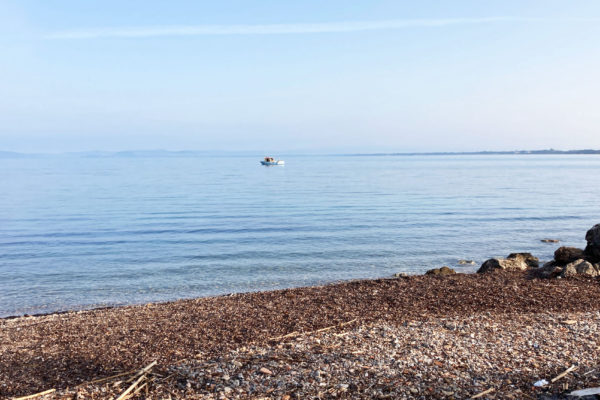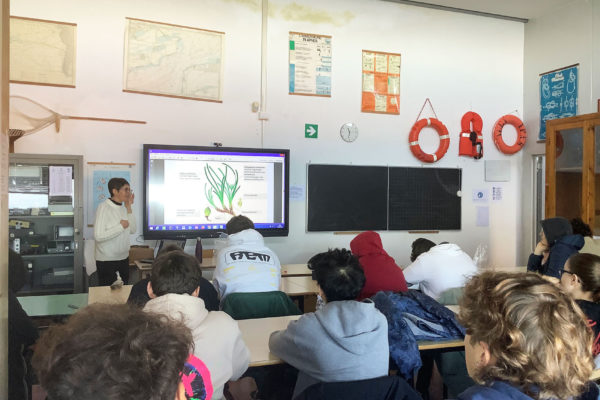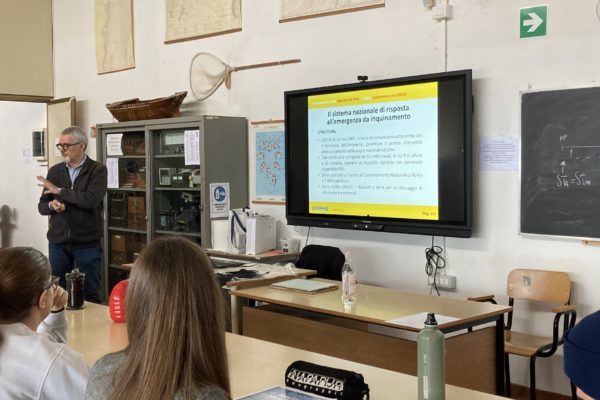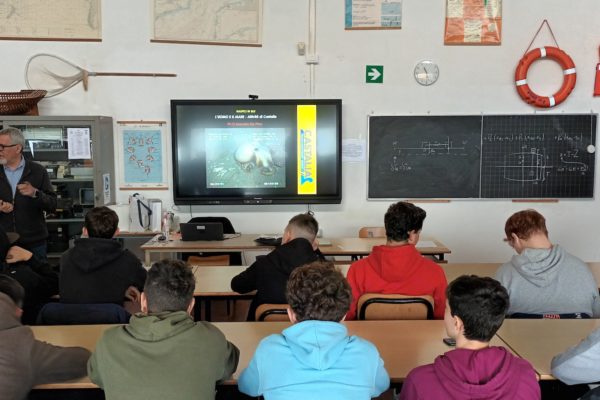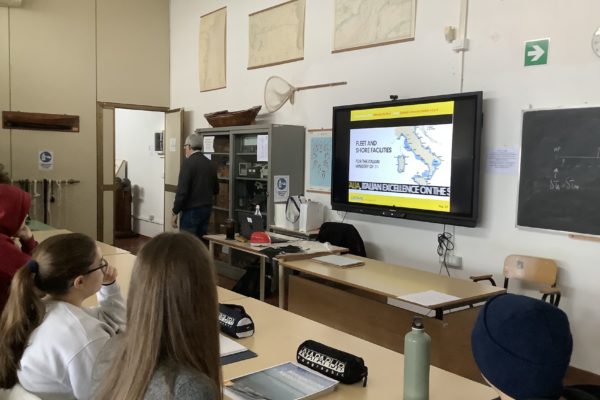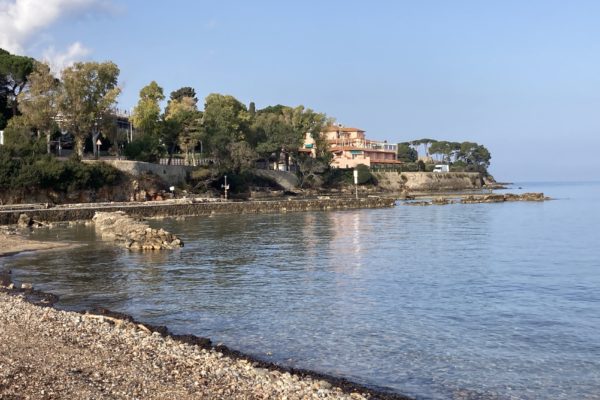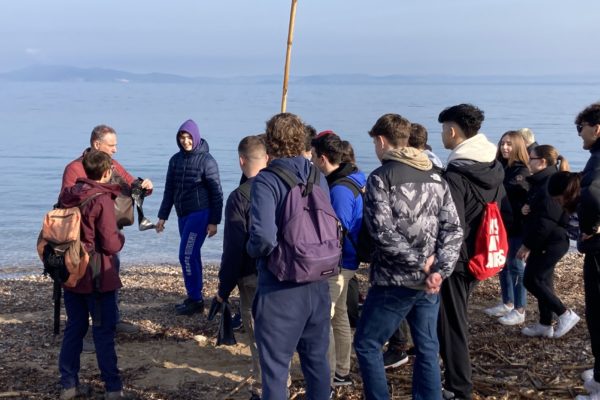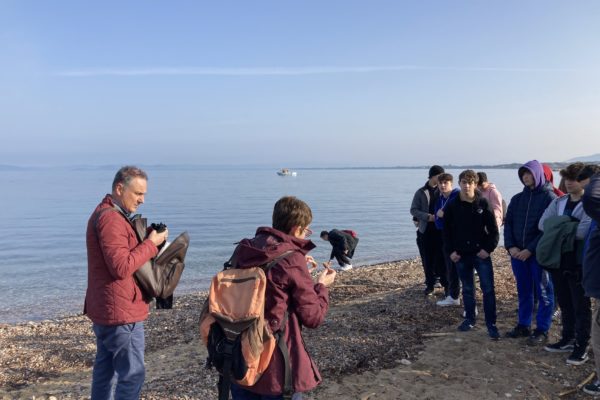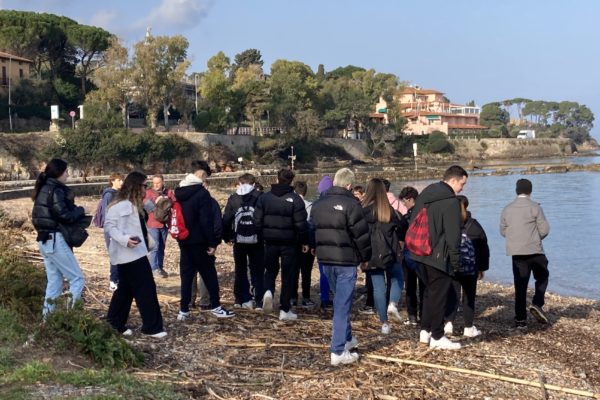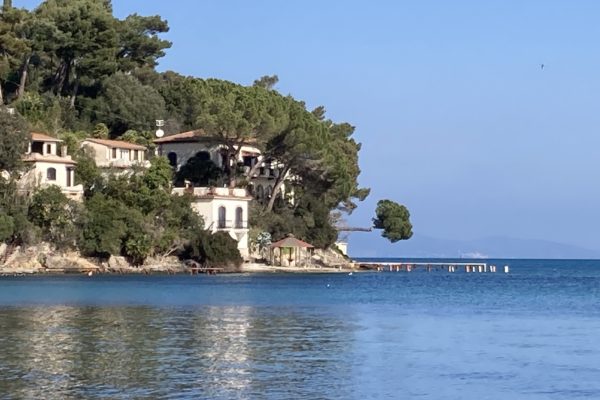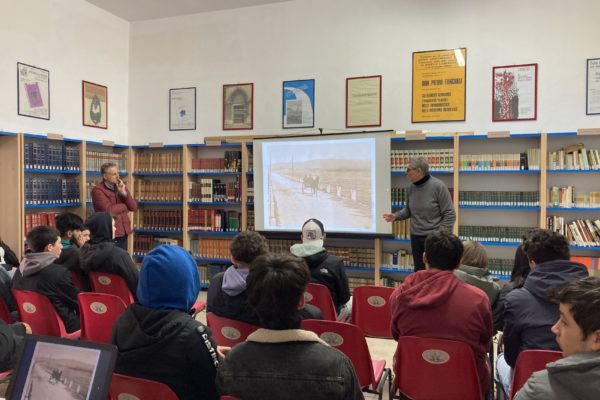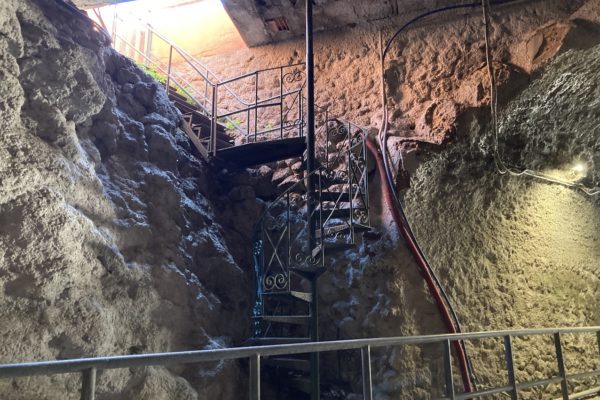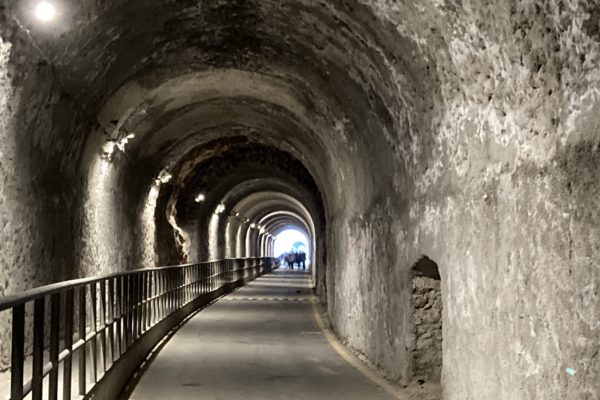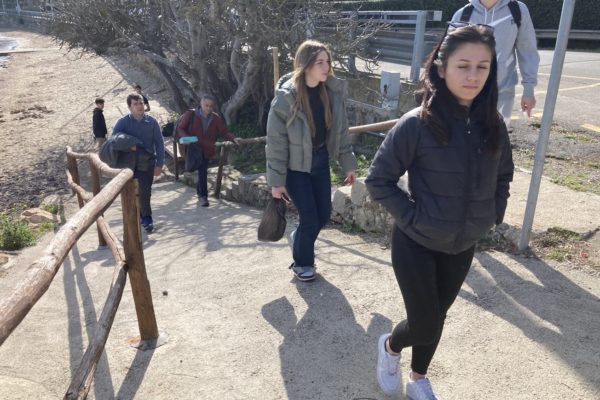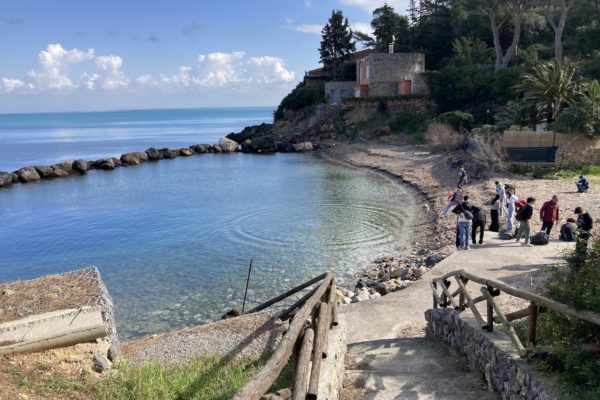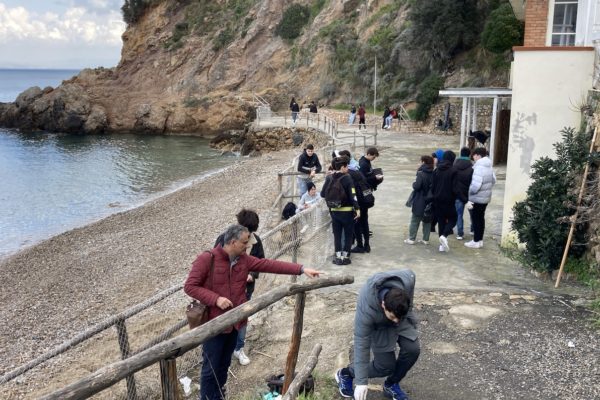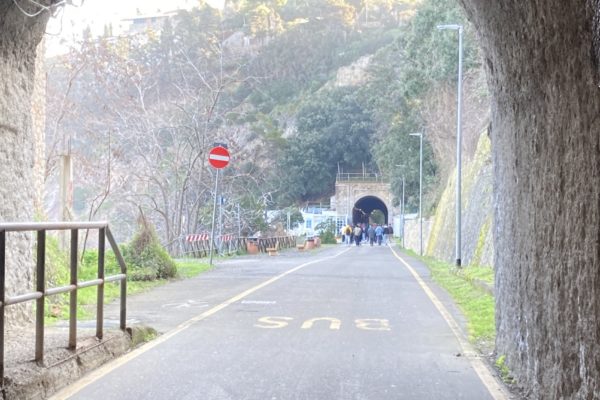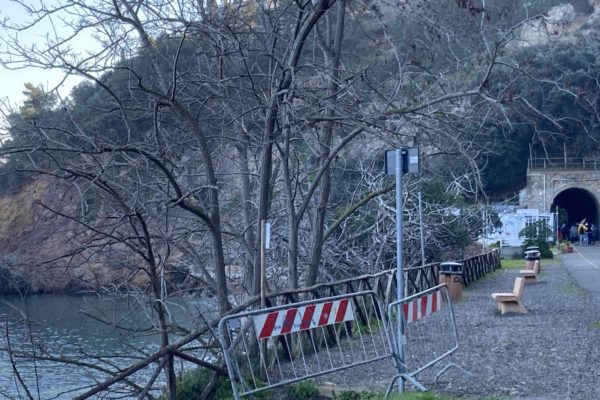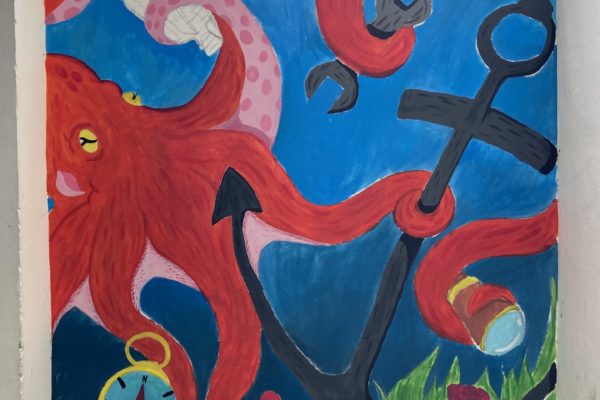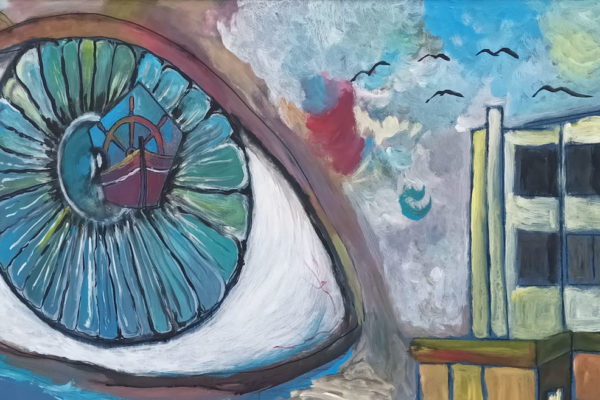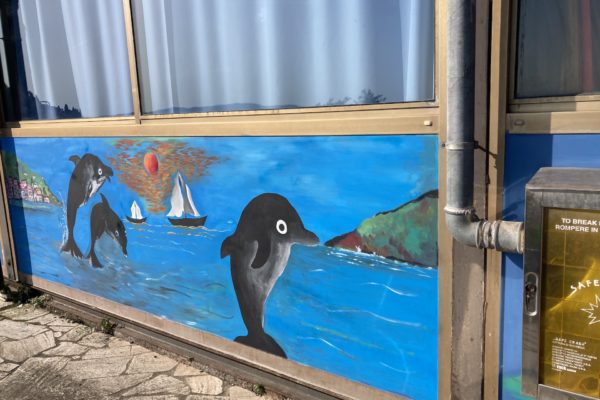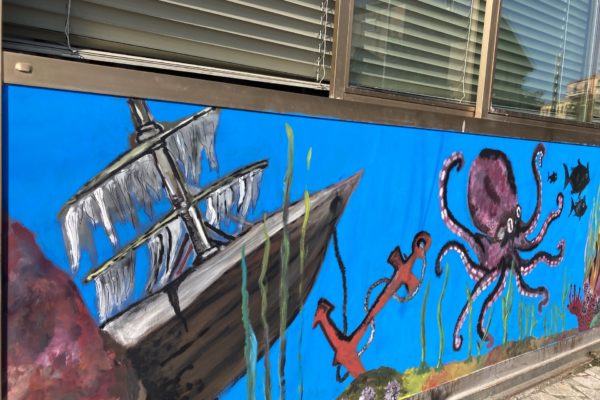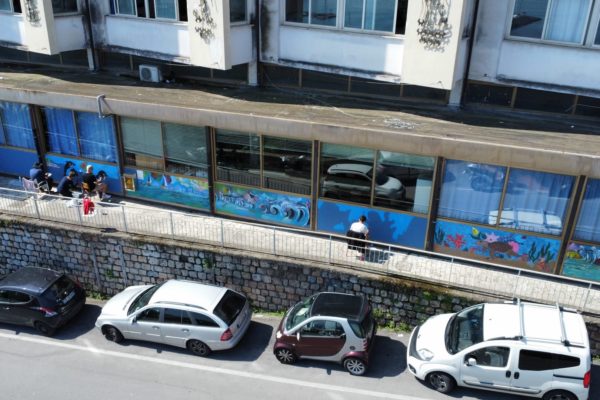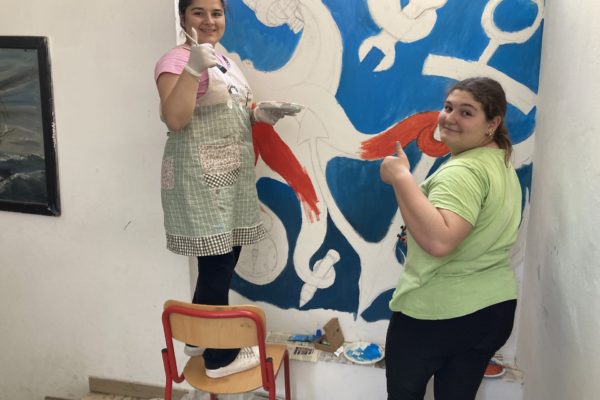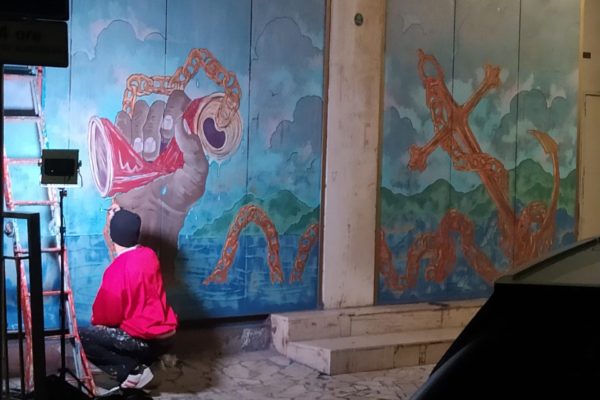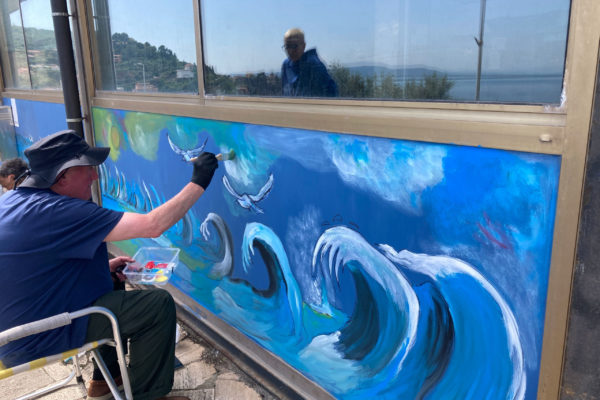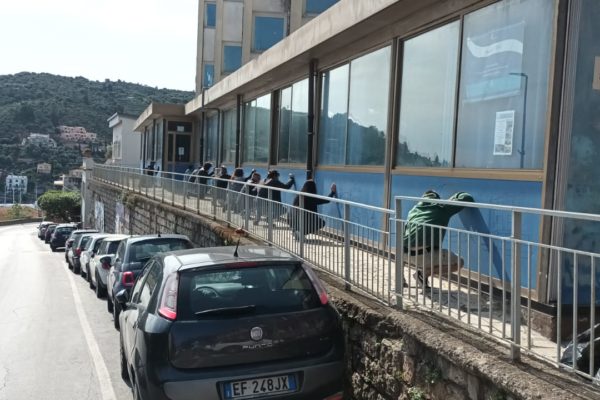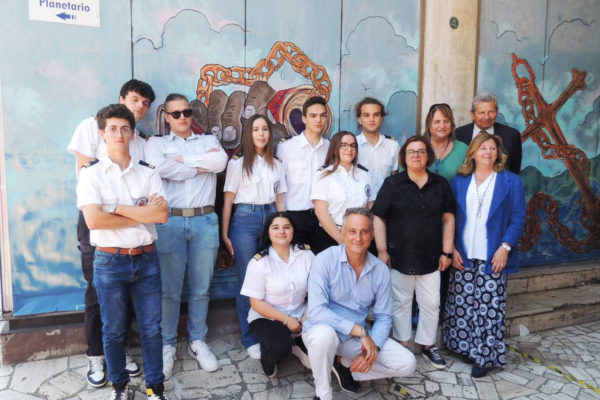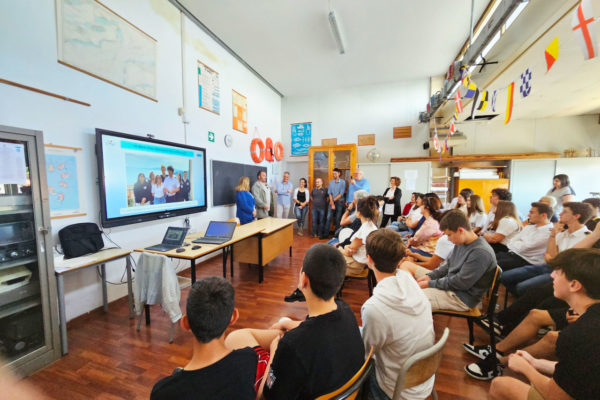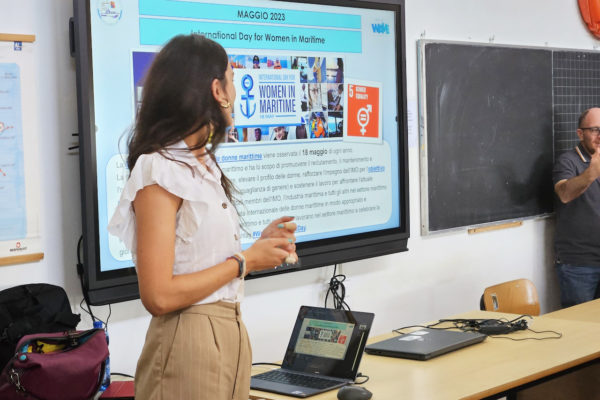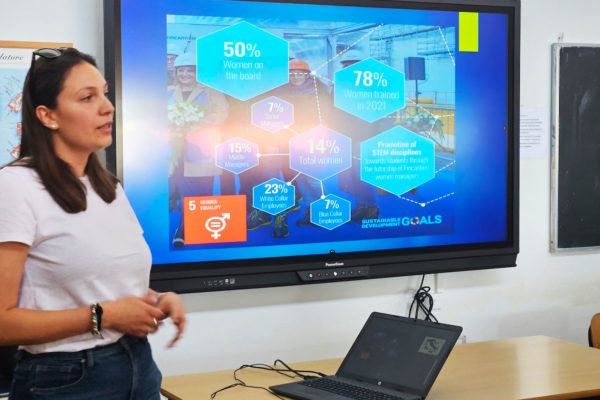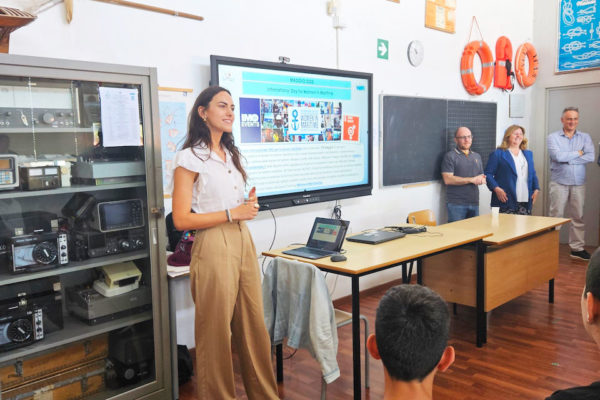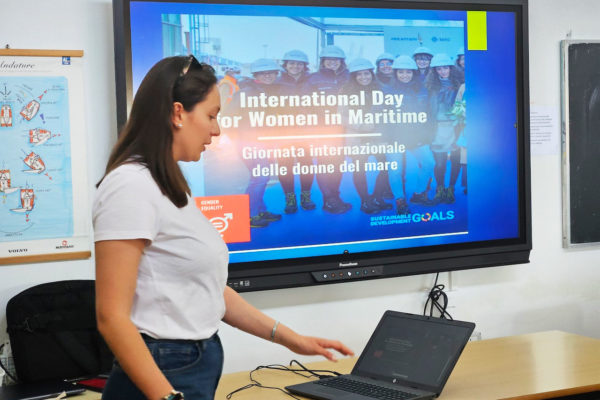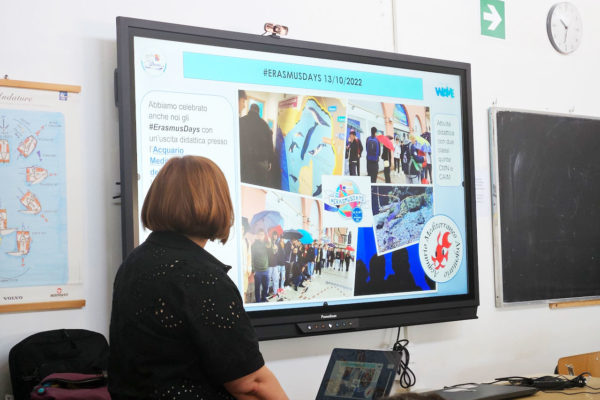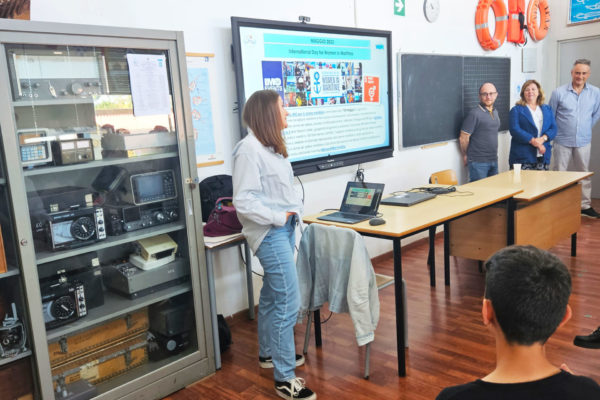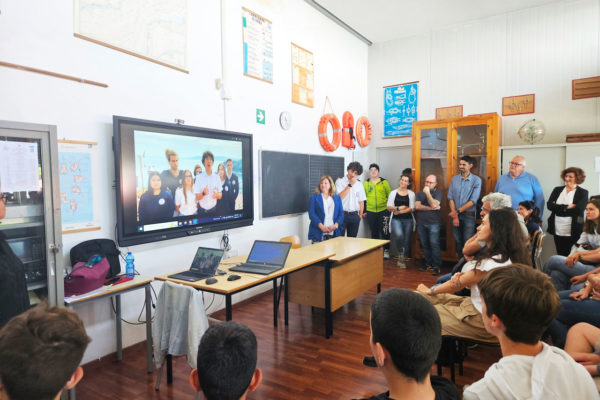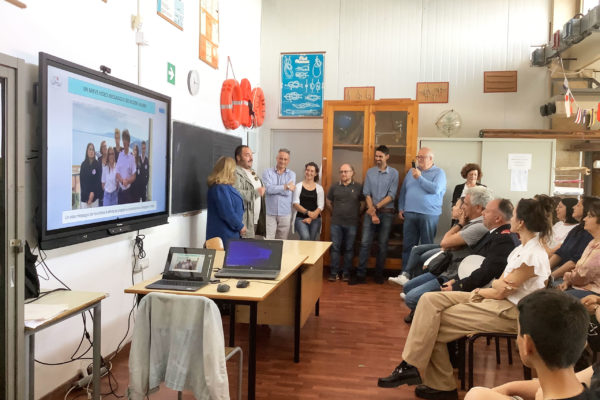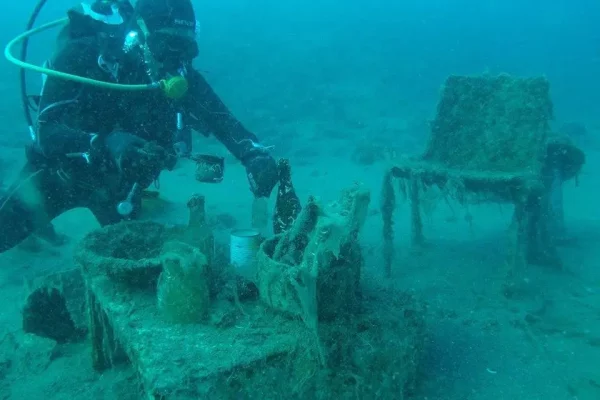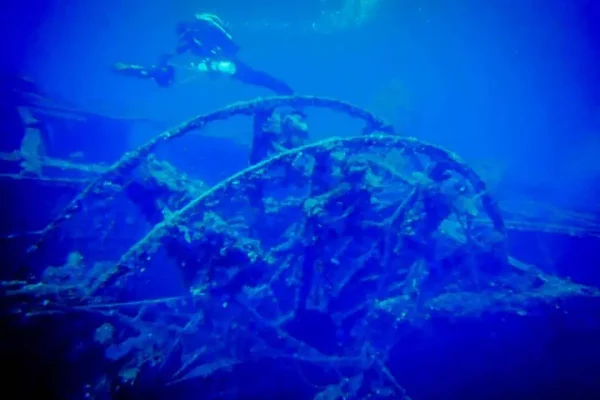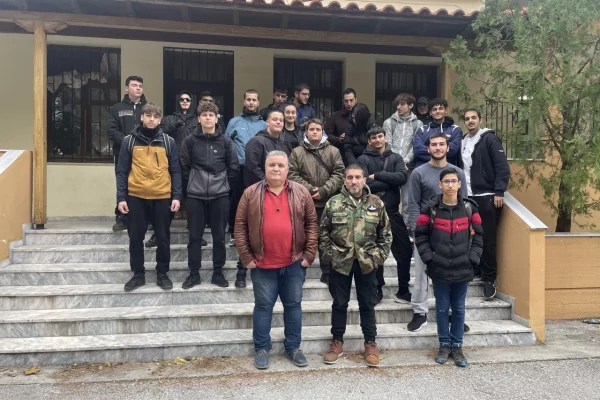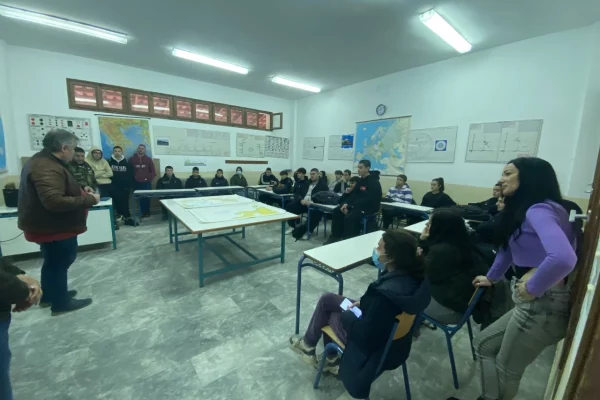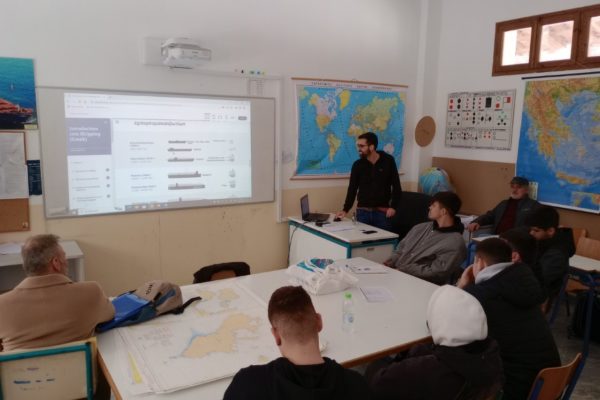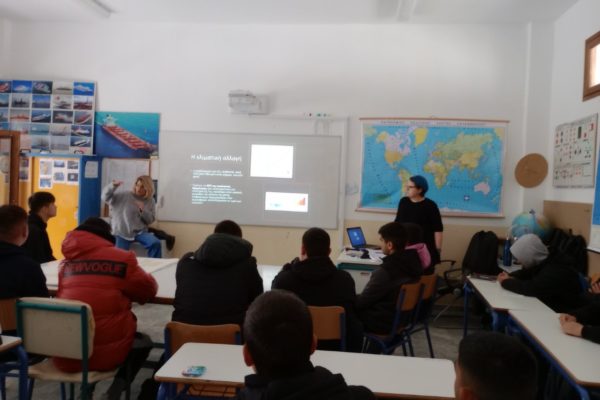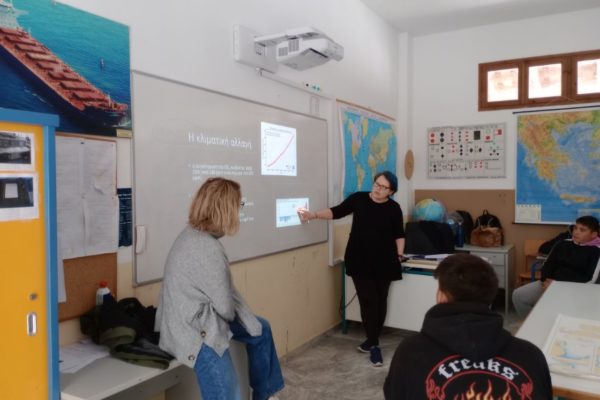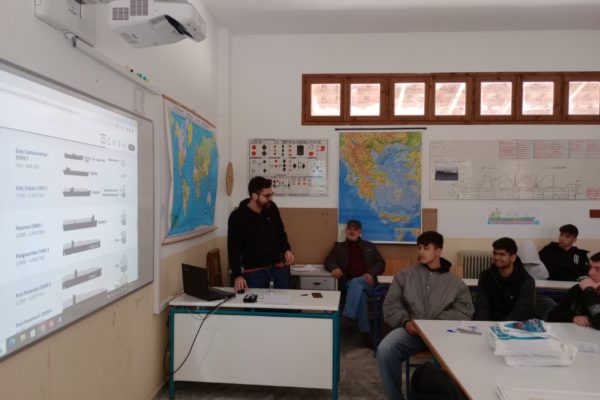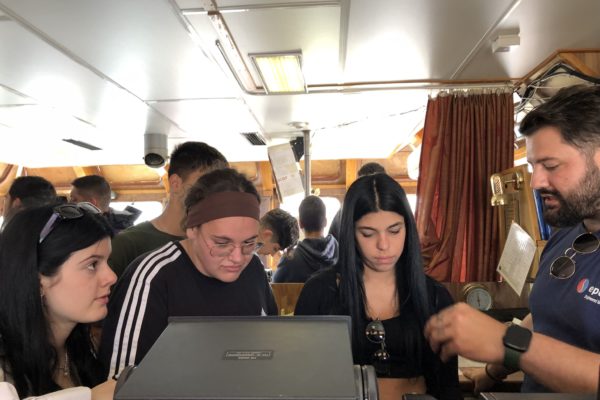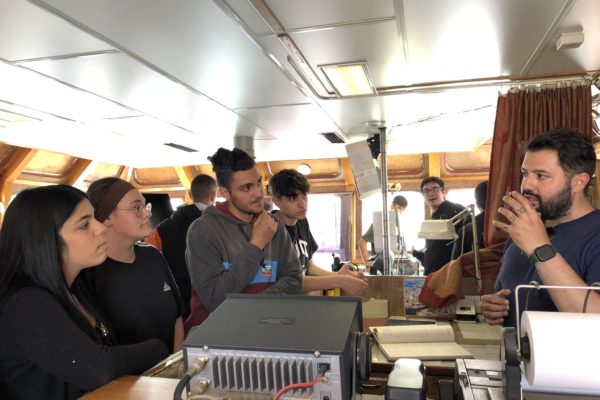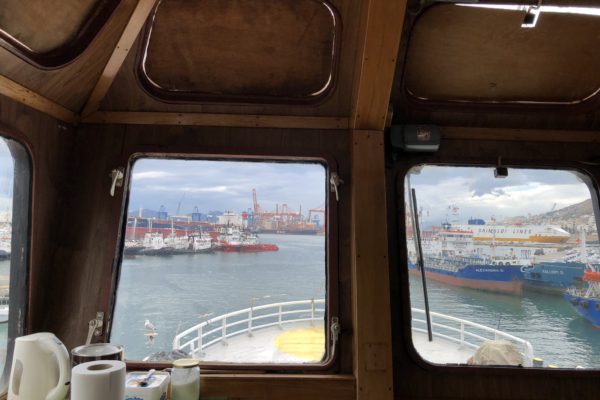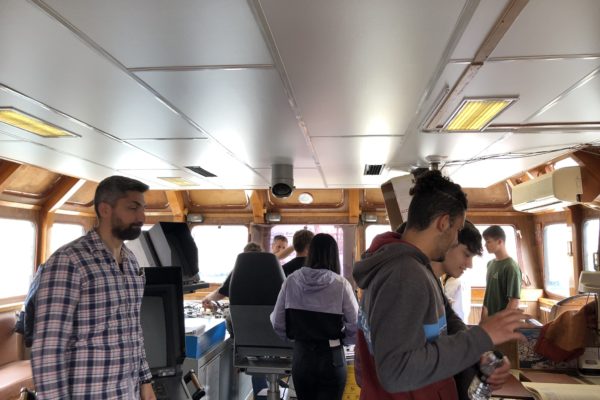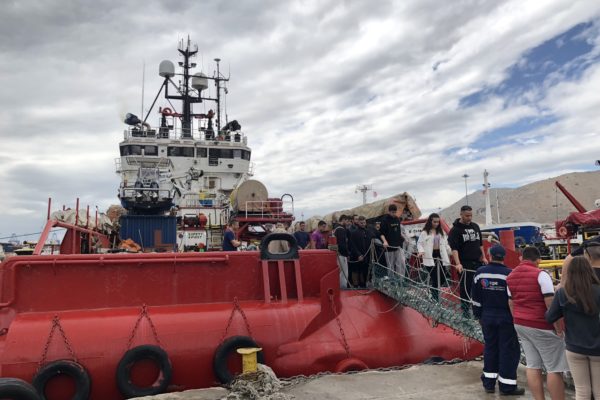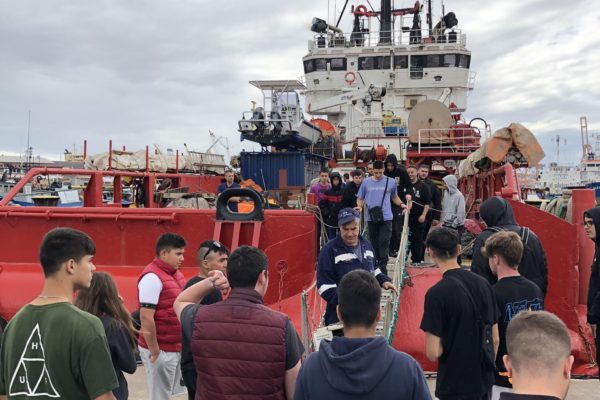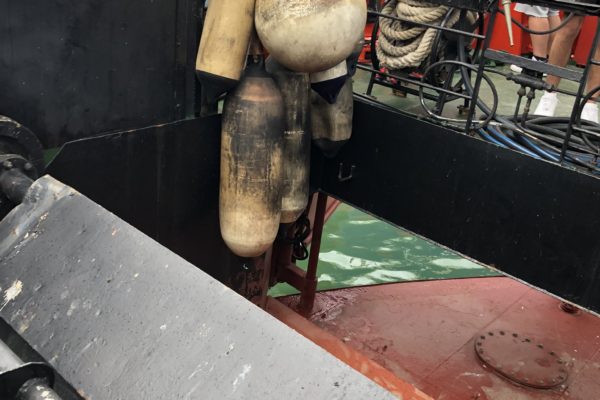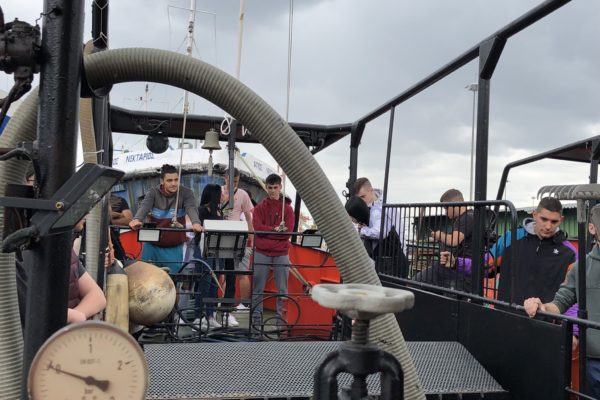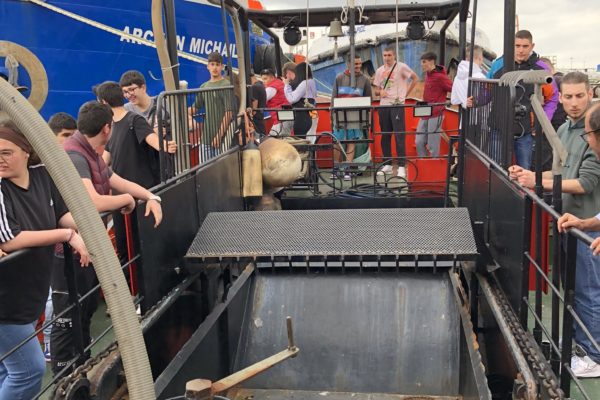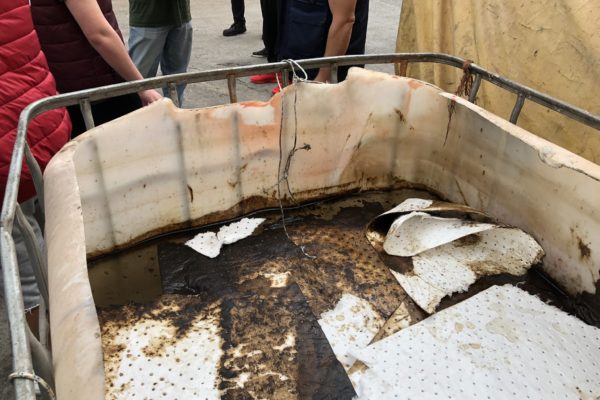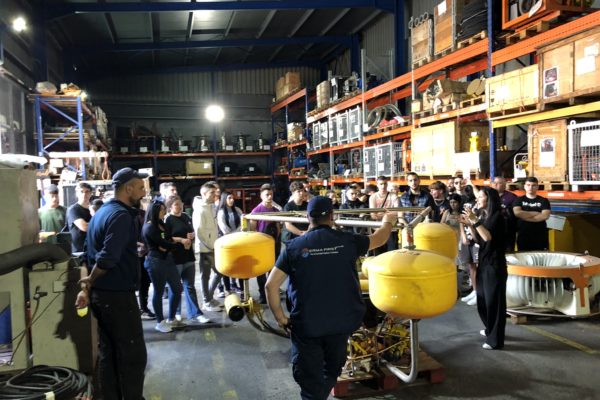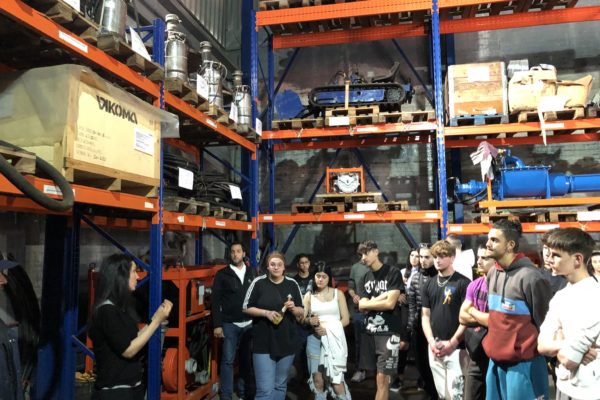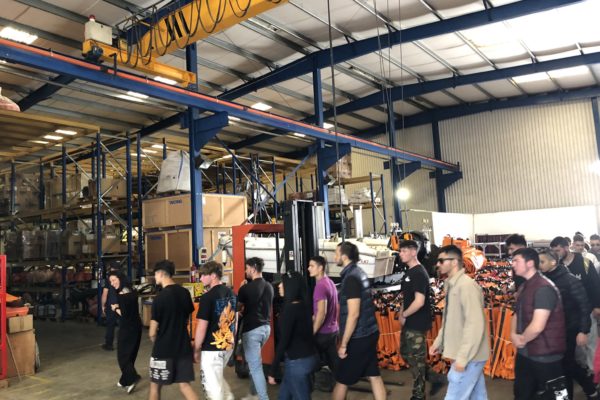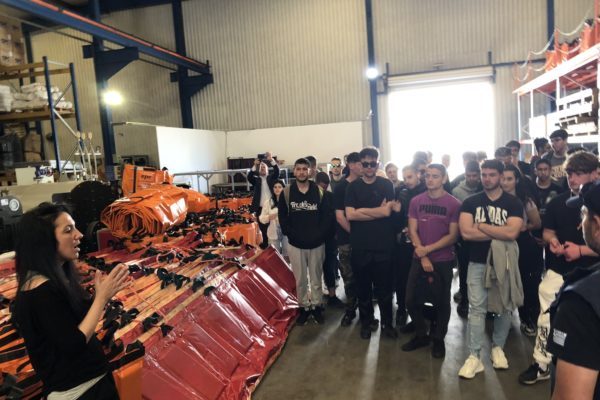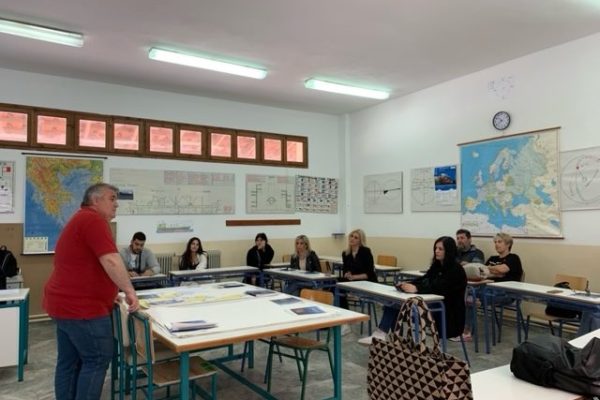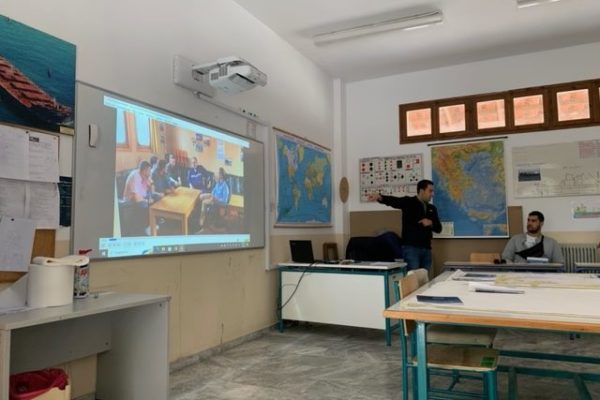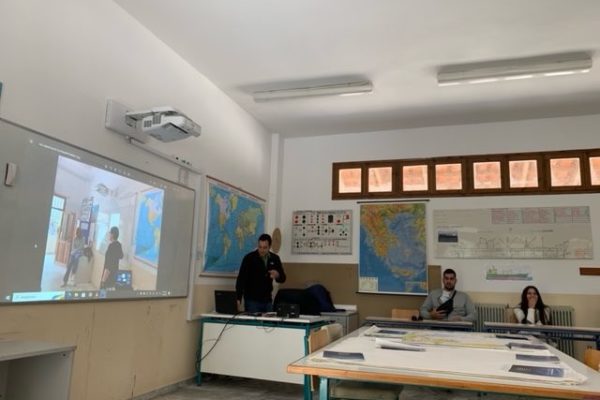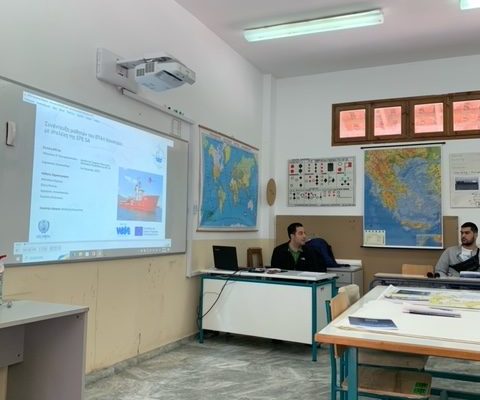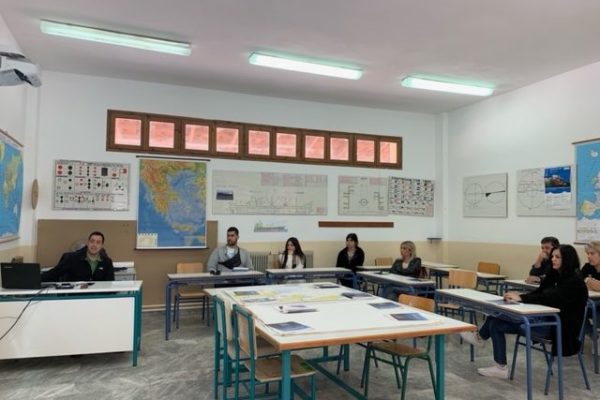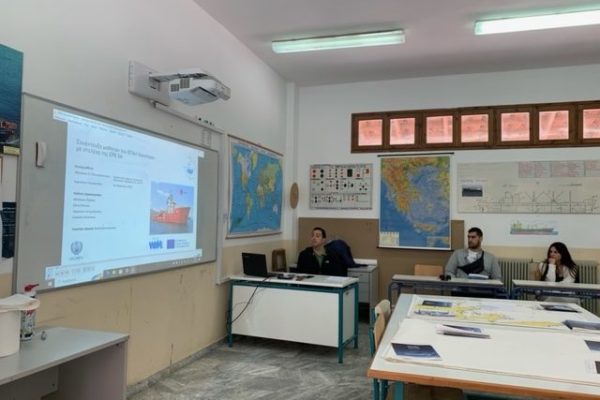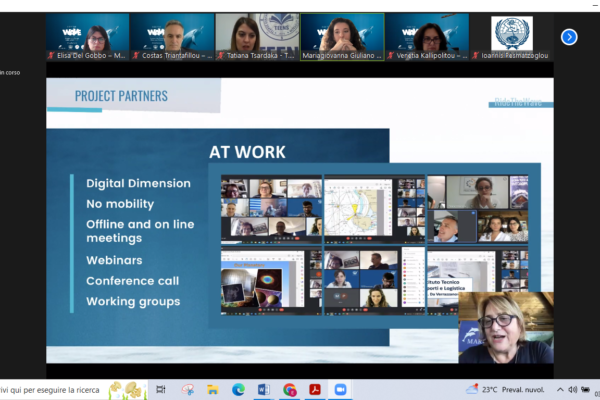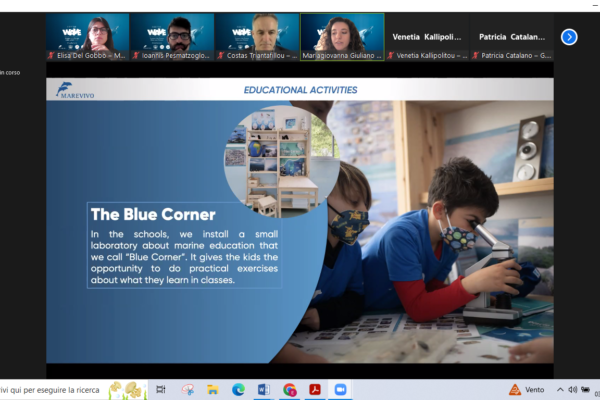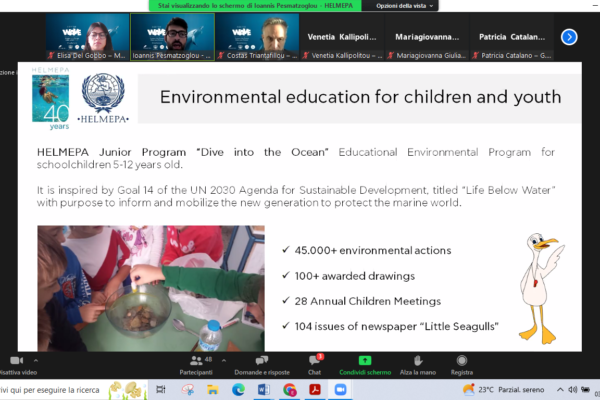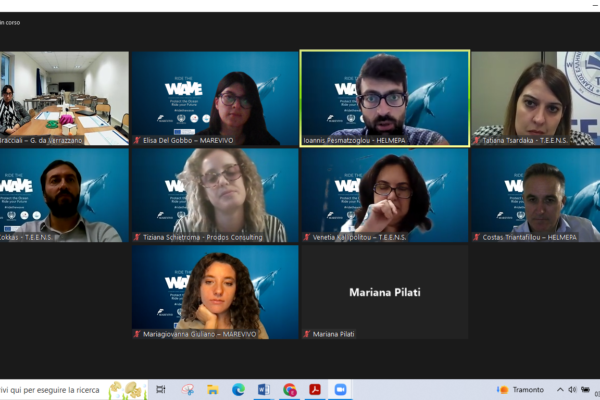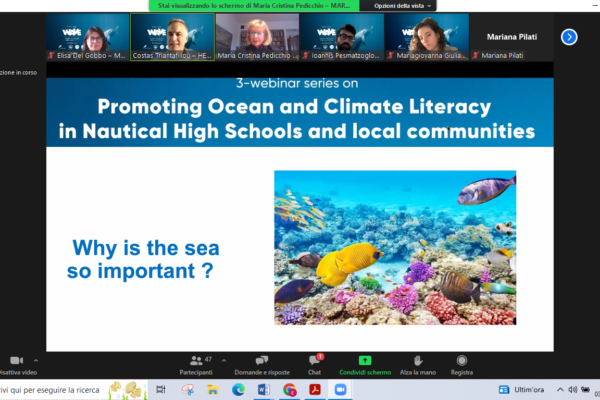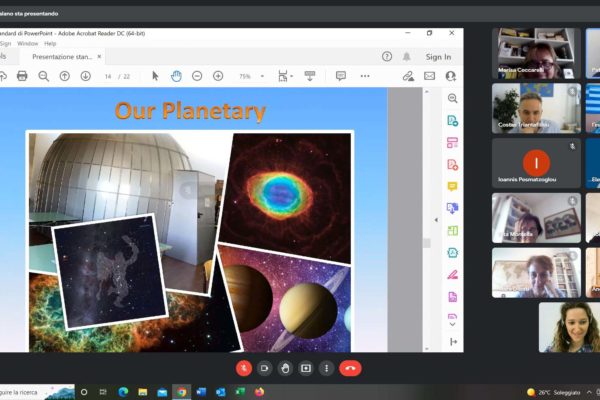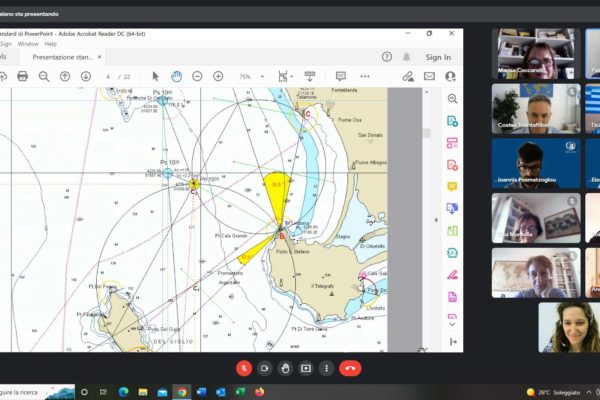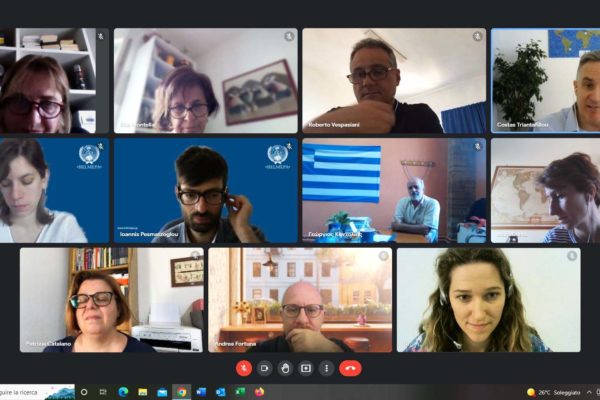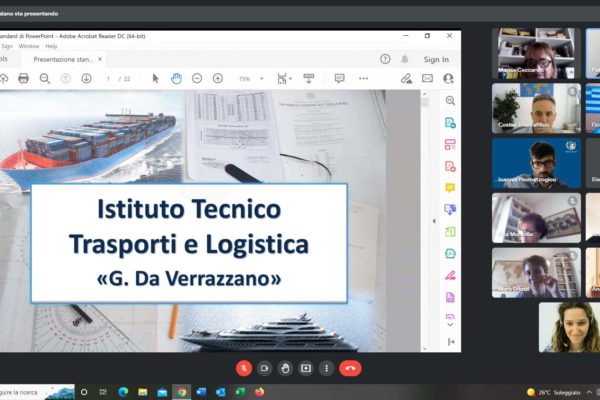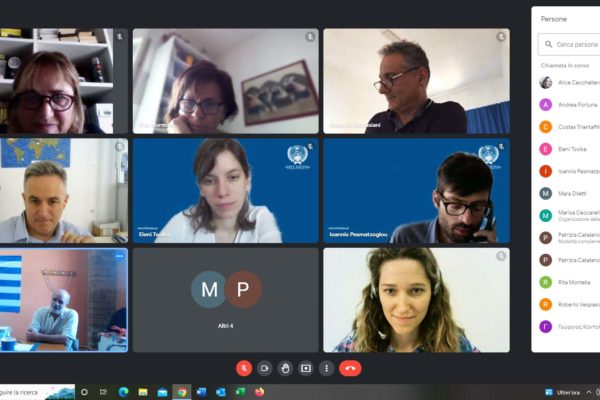
After the final evaluation, the project has been identified as “Best Practice” and labeled as such in the Erasmus+ Results Platform
Do you want to replicate Ride the Wave in another Nautical Institute?

The Project funded by European Erasmus + Programme 2021-2027- KA210-SCH-Small Scale Partnership in school education, started in April 2022 and ended in August 2023.
GOAL
The aim is to raise individual and collective awareness among students of Nautical High Schools – who will be future sea workers – teachers, citizens and local communities about the ocean’s and climate’s role and influences on our lives and our influences on the oceans and climate.
SPECIFIC OBJECTIVES
THE CROSS-CUTTING OBJECTIVES
- To extend the understanding that the Global Ocean is the most important system for climate regulation on Earth
- To raise awareness of the conservation of marine biodiversity and marine ecosystem services.
- To expand the initiative to other European Countries.
PARTNERS ACTIVELY ENGAGED
In the framework of the European Ocean Coalition EU4Ocean, Generation Climate Europe, the Agenda 2030 for Sustainable Development and in line with the UN Decade of Ocean Sciences, “Ride the Wave” involves four Italian and Greek partners actively engaged in the protection of the Mediterranean Sea and the conservation of marine biodiversity.
The beneficiaries of the project presented and approved by INDIRE, the Italian National Agency referee for Erasmus programs for Schools
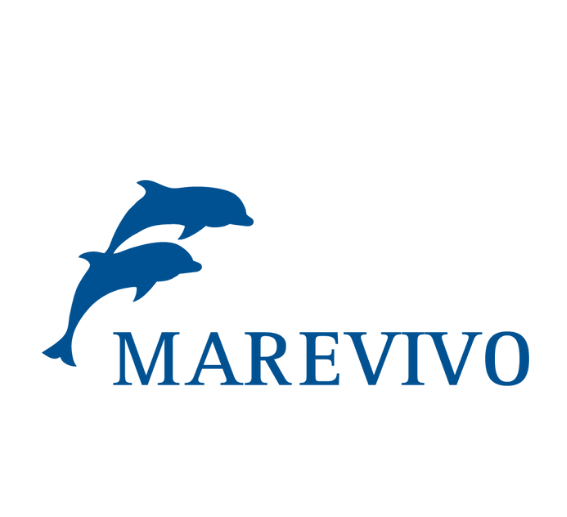
MAREVIVO ONLUS
General Coordinator of the initiative

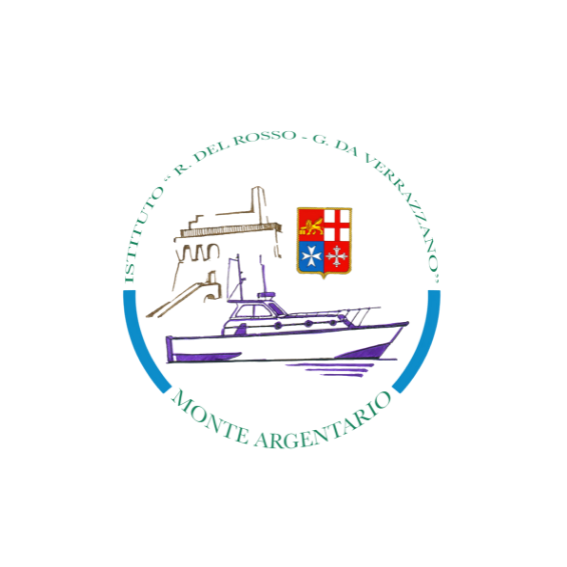
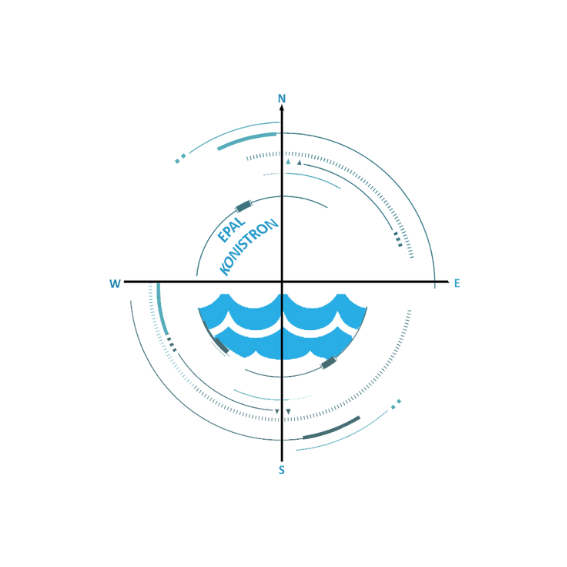
Partner
MAREVIVO ONLUS
Marevivo is an independent environmental association which - since 1985 - fights for the protection of the sea and its resources, through national and international actions and campaigns. Among its main objectives are the conservation of biodiversity, the fight against illegal fishing and plastic pollution, the promotion of sustainable development, the creation of Marine Protected Areas and the organization of environmental education activities in schools and universities. Marevivo is constantly active with awareness-raising activities, and working side by side with institutions and governments in order to obtain effective and concrete laws to fight marine litter and protect the marine ecosystem.
The Association currently relies on the work of hundreds of volunteers, thousands of members all over Italy, and four main divisions (Diving, Sailing, Canoe&Kayak, Beaches&Shores).
Partner
HELMEPA
For four decades (since June 1982), HELMEPA has been a leader in the protection of the marine and coastal environment, safety at sea and sustainability, with multidimensional activity. HELMEPA has evolved into an open, resilient and participatory platform that cultivates environmental awareness, knowledge share, volunteering, collaboration and action with positive and measurable impact on marine health. Through a participatory network of communities, 250,000+ volunteers have organized cleanup activities, 450,000+ children have visited HELMEPA’s environmental exhibitions and many have grown up with the message of the iconic Seagull. HELMEPA has a Certified Maritime Training Center, equipped with a Bridge Simulator that has trained 22,500+ seafarers – members.
About us
Partner
THE ITALIAN NAUTICAL INSTITUTE
"G. Da Verrazzano” in Porto Santo Stefano (Grosseto, Italy)
Istituto Tecnico Trasporti e Logistica “G. Da Verrazzano” is a high school specialising in maritime transport, located in the province of Grosseto, on the southern coast of Tuscany, Italy.
Students receive specialised scientific and technical instruction and professional training to pursue careers as deck and engine room officers in the merchant navy, on cruise ships or as qualified ground personnel in ports and shipyards. They gain work experience on board yachts, ferries and in maritime sector companies and shipyards. They also participate in interdisciplinary projects aimed at raising awareness about the importance of reducing waste and pollution and promoting greater knowledge of the marine environment.
Work-oriented students generally choose this school because of the wide and early job prospects that this technical secondary school diploma offers: maritime training and its related activities.
Partner
THE GREEK NAUTICAL INSTITUTE
The 1st Vocational High School of Konistres (Evia-Greece)
EPAL Konistron is a technical high school specialized in maritime education. It is located 80 km from Chalkida and has 80 students from all over Evia island. Its laboratories have been recently upgraded with Engine and Bridge Room Simulators.
About us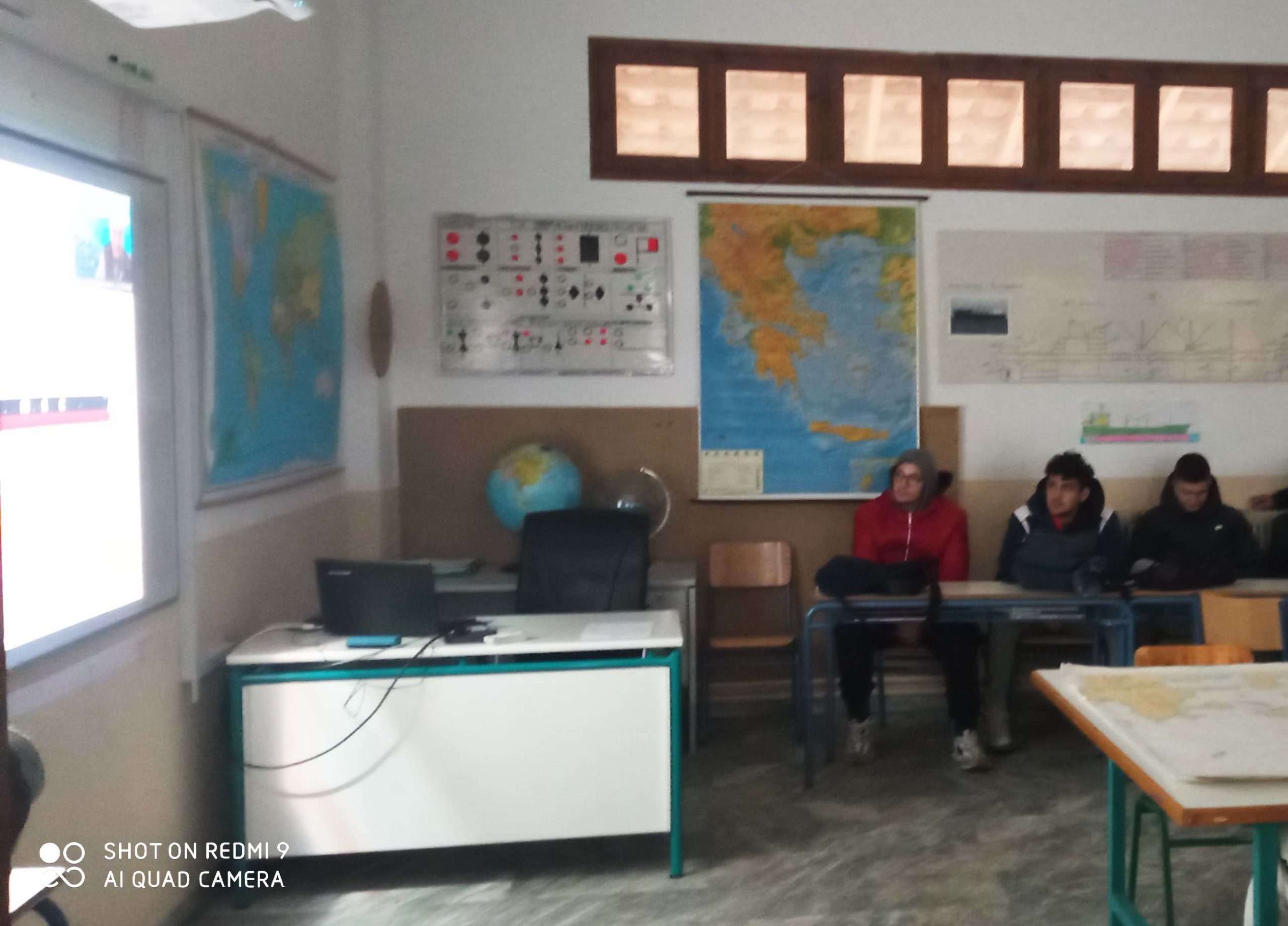
VIRTUAL GREETINGS BETWEEN GREECE AND ITALY
Students from the Nautical Institutes involved share the project experience.
The Italian Nautical Institute
The Greek Nautical Institute
Environmental Education Programme on Ocean and Climate Literacy
Italian Nautical Institute “R. Del Rosso-G. Da Verrazzano”
- DAY 1| February 13, 2023
- DAY 2 | February 15, 2023
- DAY 3 | February 18, 2023
- DAY 4 | February 22, 2023
- DAY 5 | March 6, 2023
- STUDENTS' PROJECT WORKS
- FINAL EVENT
DAY 1| in the Nautical High School "G. da Verrazzano"
Introduction to Erasmus+ Programme, presentation of the project “Ride the Wave” and description of the Ocean and Climate Literacy Principles.
- Ocean and Climate Literacy Principles
- Biodiversity in the Mediterranean
- European Opportunities for Youth
- Student project work and brainstorming
MAREVIVO OPERATORS
Elisa Del Gobbo – Bianca Melita Palmas – Tiziana Schietroma
Day 2 | Only One Ocean
Acquiring knowledge and understanding of the Global Ocean and its functions as climate regulator, source of food, work, well-being, energy, raw materials and medicines, and as reservoir of the largest biodiversity on the planet.
BIODIVERSITY IN LIFE-RICH MARINE ECOSYSTEMS
- Adaptation and evolution of terrestrial plants in marine environments and formation of grasslands in the Mediterranean.
- Posidonia oceanica (aka “Neptune Grass”): trophic (feeding) relationships in a Posidonia oceanica meadow; observation of somebeached samples collected in Santa Liberata; ecological importance of Posidonia meadows and ecosystem services; threats and causes of the regression of the Posidonia Beds; Posidonia oceanica as a bioindicator.
A case study: Posidonia oceanica meadow in the Santa Liberata area.
A SEA OF PLASTIC
- Origin and composition of marine litter; microplastics: primary and secondary origin; interaction of microplastics with marine organisms.
- The situation in the Mediterranean Sea: what can be done?
EXPERT
Margherita Volterrani – Research Biologist
Day 3 | Humans and the Sea: UN Agenda 2030
Learning about the cause-effect relationship between man and sea, in order to adopt new behaviours in the practice of the profession of sea operator and/or seafarer, and helping to manage the Sea and its resources in an sustainable way.
Promoting knowledge of the 2030 OSS-SDG Agenda: quality education, responsible use of resources, fight against climate change and sustainable use of the sea; the Marine Strategy Framework Directive; of Natura 2000 in the Marine Environment; national laws and European Conventions and Conferences on climate, sea, biodiversity, and Marine Protected Areas.
Developing interdisciplinary key competencies, in particular: facilitating the acquisition of knowledge, skills, values, and behaviours to become responsible actors in a sustainable future!
National Pollution Emergency Response System Anti-Pollution Systems
Castalia activities for the protection of the maritime environment:
- Anti-pollution and salvage operations;
- Environmental remediation of waters, seabeds and coasts;
- Recovery of toxic and harmful waste from the seabed;
- Underwater investigations and environmental monitoring;
- Environmental education and awareness;
- Protection of marine flora and fauna;
- New research and development of anti-pollution technologies and systems.
EXPERT
Maurizio De Pirro – Italian Marine Ecology Company Expert “Castalia Consortium”
Day 4 | Visit to Marina & Giannella Beach
Observation of the environment – beach, plants, shore etc. – and beach clean-up: the importance of protecting the marine environment
Acquiring knowledge and understanding of:
- the cause-effect relationship between man and the sea;
- the Global Ocean as a climate regulator, a source of food, work, health, energy, raw materials and medicines, and as a reservoir of the planet’s greatest biodiversity.
Adopting new behaviours to contribute to the management of the sea and its resources in an increasingly sustainable way.
EXPERT
Margherita Volterrani – Research Biologist
Day 5 | Porto Santo Stefano beach clean-up
History lesson held at Centro Studi Don Pietro Fanciulli by historian and author Gualtiero Della Monaca regarding the galleries connecting some of the most important beaches of Monte Argentario: la Cantoniera, Punta Nera, la Bionda and Pozzarello.
Visit to the beaches – passing through the old train galleries – of Porto S. Stefano up to Pozzarello and plogging (beach clean-up along the way).
EXPERT
Gualtiero Della Monaca – Historian and Author of Centro Studi Don Pietro Fanciulli
THE "ART FOR THE SEA"
The “Art for the Sea” mural art project is a collaborative initiative aimed at raising awareness about the importance of ocean conservation and promoting the health of our seas among high school students. “Art for the Sea” combines artistic expression with environmental education to inspire positive change and encourage sustainable practices. The primary objective of the project is to engage students in a creative endeavour that highlights the significance and importance of preserving the health of our oceans.
The project intends to spark conversations about the marine environment and empower students to take action to protect our oceans.
The project used eco-friendly paint called Airlite, which utilises natural photocatalysis to reduce pollutants in the air.
THE FINAL EVENT
The 1st Vocational High School of Konistres (Evia-Greece)
- DAY 1| December 13, 2022
- DAY 2| March 29, 2023
- DAY 3| March 30, 2023
- DAY 4 | April 26, 2023
- STUDENTS' PROJECT WORKS
- FINAL EVENT
DAY 1| in the 1st Vocational High School of Konistres Nautical Institute with the Dytes Corinthia Association
Exploring the techniques of underwater cleaning and the preservation of marine ecosystems.
The “Ride the Wave” project was introduced to the students, outlining its overarching objective, specific goals and outcomes.
The training day was organized, led by Mr. Tasos Chatzantonis, the president of the Dytes Corinthia Association, in order to provide valuable insights and guidance on:
- Techniques and importance of underwater cleaning
- Best practices for underwater cleaning
- Impact of marine pollution
- How to preserve marine ecosystems
EXPERTS
Tasos Chatzantonis
DAY 2 | Ocean and Climate Literacy
The two experts of HELMEPA, Dr. Valia Augoustidou and Dr. Jennifer Pistevos, conducted an informative full-day presentation focused on Ocean Literacy and Sustainability.
Specifically, the presentations provided a comprehensive exploration of key topics within the realm of marine biology and environmental science:
- Ocean Literacy Principles
- Climate Change
- Mediterranean biodiversity and habitats
- Threats to Marine Life – Ocean Acidification
- Sustainable Fisheries
- Marine Species Conservation
- In this way, the aim was to promote a deeper understanding of various important aspects, including:
- The 2030 OSS-SDG Agenda, emphasizing the significance of quality education, responsible resource utilization, the fight against climate change, and sustainable oceanic practices.
- The Marine Strategy Framework Directive, focusing on the comprehensive planning and management of marine environments.
- Natura 2000 in the marine environment, highlighting the importance of preserving and safeguarding natural habitats and species.
- National laws and European conventions and conferences concerning climate, oceans, biodiversity, and marine protected areas.
EXPERTS
Jennifer Pistevos – Marine Biology Expert, Valia Augoustidou – Marine Biology Expert
DAY 3 | The Blue Economy Sector and the Ecological Transition
The two experts of HELMEPA, Dr. Valia Augoustidou and Dr. Jennifer Pistevos, organized the second informative full-day presentation focused on the Blue Jobs in the Blue Economy Sector.
The presentations provided an in-depth exploration of various topics related to the Blue Economy sector, including:
- Opportunities for young individuals – Maritime Sector
- Opportunities for women – Maritime Sector
- Challenges faced by the shipping industry in light of climate change and ecological transition
- The importance of seeking alternative and sustainable solutions for the use of ocean resources
- Community engagement and public awareness for the conservation of the oceans
EXPERTS
Jennifer Pistevos – Marine Biology Expert, Valia Augoustidou – Marine Biology Expert
Day 4 | Explore the facilities of Environmental Protection Engineering (EPE) & the Boat Visit
EPE is a leading company, located in Piraeus, with over 45 years of experience in the Marine & Industrial sector, specializes in innovative technologies for water treatment and environmental response services worldwide.
During the visit at EPE facilities, students were given a comprehensive overview of EPE’s operations and anti-pollution systems. They also had the chance to witness an interactive demonstration led by EPE’s experts, showcasing a specialized orange material specifically designed to efficiently absorb oil from water. This demonstration highlighted practical methods for mitigating the environmental impact of oil spills and promoting cleaner seas.
Furthermore, students were granted permission to board three of EPE’s vessels, including two smaller litter collecting vessels and their larger multi-purpose ship, Aegis II.
As the final output of this experience, the students had the opportunity to conduct an in-depth interview with key members of the anti-pollution company EPE, including the chief oceanographer and the first engineer. This exclusive opportunity allowed the students to delve into the intricacies of environmental clean-up procedures, gaining valuable insights from the experts themselves.
The students raised relevant questions, generating meaningful discussions on topics such as gender representation in the field and the diverse career prospects available, particularly for women. The interview session lasted approximately 20 minutes.
Together with the HELMEPA expert: Jennifer Pistevos
EXPERTS
Thanassis Polychronopoulos – EPE the Chief Oceanographer-environmentalist, Kyriakakos Kyriakoulis – EPE First Engineer
STUDENTS' PROJECT WORKS
The activity featured in the video is part of the “Ride the Wave” project, which was made possible through the Erasmus+ KA210-SCH program, having received approval from INDIRE, the National Institute for Documentation, Innovation, and Research, as referee for Erasmus programs in the field of education.
The 17-month project engaged four partners from two nations, Italy and Greece, encompassing two environmental associations and two Vocational Nautical Institutes.
The project was coordinated by the environmental Foundation Marevivo. The partners were HELMEPA (Hellenic Marine Environment Protection Association), the Nautical Institute G. Da Verrazzano in Porto Santo Stefano, Italy, and the 1st Vocational High School of Konistres, Greece
The school has obtained certification to become a member of the European Blue School Network, thanks to the successful implementation of this final student project work.
THE FINAL EVENT
FAQ
How to get involved?
If you are a Nautical School, an environmental Association, a Marine Protected Area or a Company active in the Blue Economy sector, be part of the Local Sea Network!
What is the Local Sea Network?
A network composed of Organizations and Entities, both project partners and network members, all active in the protection of the seas and oceans and/or directly or indirectly dealing with the Blue Economy sector. As members, we share the mission of sea protection, education and training, aimed at participating in joint international and intersectoral initiatives.
How to be a member of the Local Sea Network?
The Local Sea Network is set up through the signing of the Memorandum of Understanding, which is a non-exclusive and non-legally binding, a collaborative relationship which has the purpose of furthering convergence of interests and joint actions through a bilateral agreement. As a result, the MoU aims to foster a synergistic cooperation on a transnational and cross-sectoral level, with a view to future initiatives widening the scope of the Ride the Wave project. Would you like more information? Send an email to: ridethewave@marevivo.it




